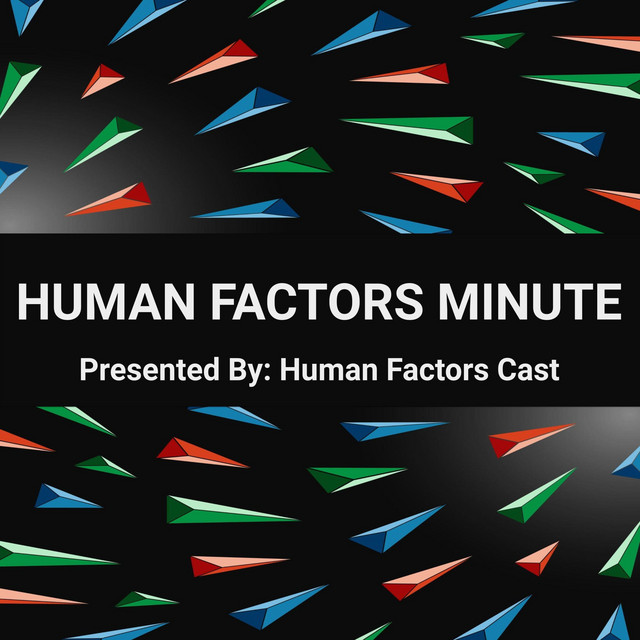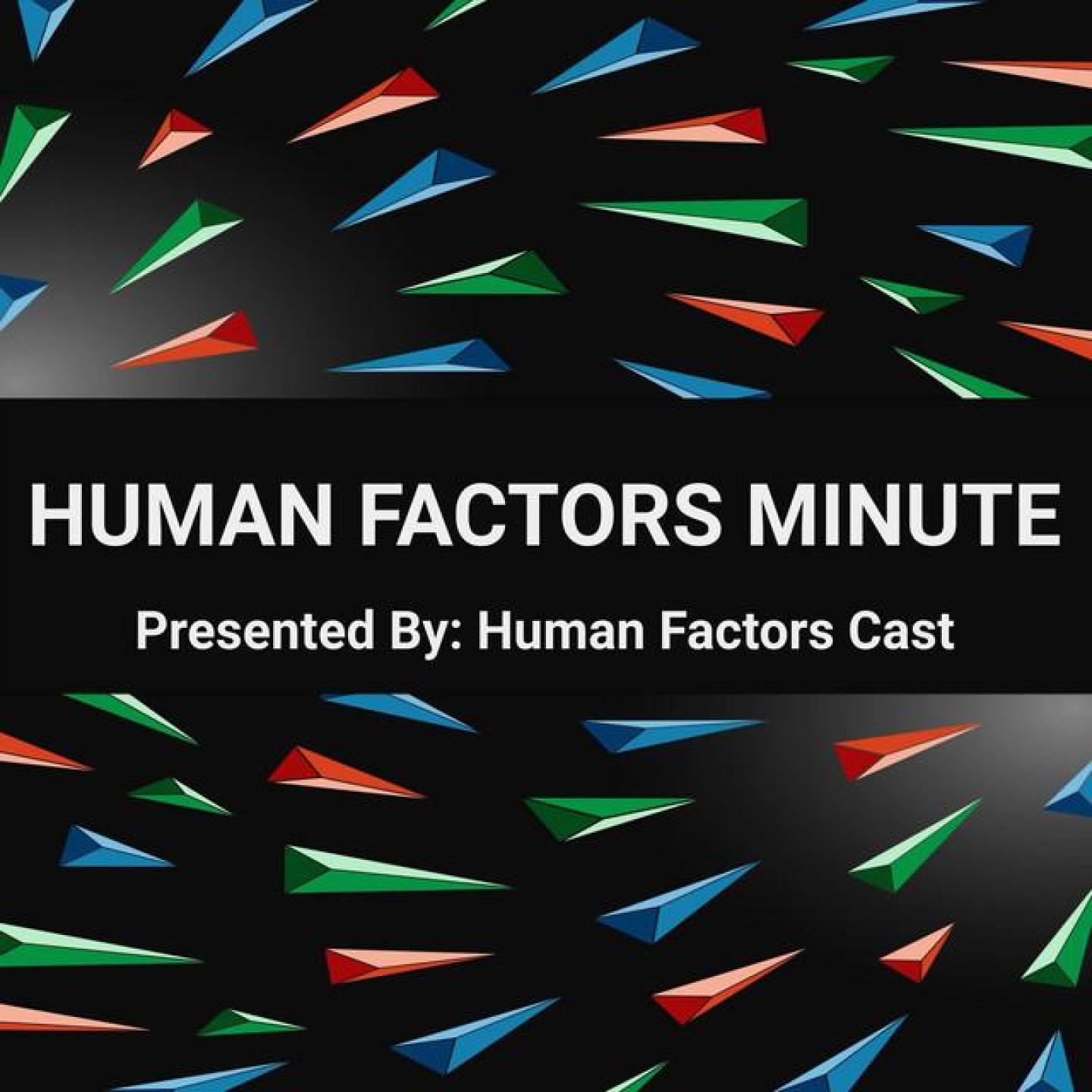Episode 106
INCOSE Systems Engineering Certifications
...and now for another Human Factors Minute!
The International Council on Systems Engineering (INCOSE) is designed to connect systems engineering professionals with professional development opportunities in the interest of developing the global community of systems engineers and systems approaches to problems. They offer three types of certification for systems engineers: Associate, Certified, and Expert Systems Engineering Professional certification.
The associate (or ASEP) certification is meant for systems engineers just beginning to practice, such as junior systems engineers. Applicants will have “book knowledge” but no significant field experience yet.
For practicing systems engineers with more than 5 years of professional systems engineering experience, there is the certified level or CSEP. Applicants are self-sufficient, capable of carrying out systems engineering tasks in a variety of work situations, and capable of practicing in a broad range of domains including military systems acquisition and development, commercial product engineering, and public infrastructure engineering.
Finally, the expert certification or ESEP is for systems engineering professionals with recognized accomplishments in the field and at least 20 years of systems engineering experience. Applicants should have substantial experience in performing and leading systems engineering, such as program managers or chief systems engineers. Individuals should be experts in some aspects of systems engineering and able to perform adequately in many. This is the person others seek with specific, challenging, technical questions.
To obtain certification, ASEPs and CSEPs must complete a knowledge examination. CSEPs and ESEPs must provide references, with ESEPs completing a phone interview instead of an exam.
INCOSE certifications are valuable at any level and help set you apart from other job applicants by demonstrating your proficiency, dedication to your work, interest in ongoing professional development, and contributions to the systems engineering community.
This has been another Human Factors Minute!
Be sure to check out our main show at our official website: https://www.humanfactorscast.media
Support us on these platforms to get access to the entire Human Factors Minute library:
Patreon: https://www.patreon.com/humanfactorscast
Buy us a coffee: https://www.buymeacoffee.com/hfactorspodcast
Join us on Discord:https://go.humanfactorscast.media/Discord
Follow us:
Human Factors Cast Merchandise Store: https://www.humanfactorscast.media/p/Store/
Follow us on Twitch: https://twitch.tv/HumanFactorsCast
Follow us on YouTube: https://www.youtube.com/HumanFactorsCast
Follow us on LinkedIn: https://www.linkedin.com/company/humanfactorscast
Follow us on Twitter: https://www.twitter.com/HFactorsPodcast
Follow us on Facebook: https://www.facebook.com/HumanFactorsCast
Resources:
Music by Kevin McLeod: https://incompetech.com/music/royalty-free/
Mentioned in this episode:
Support us on Patreon for access to the full library of Human Factors Minute
https://www.patreon.com/humanfactorscast


